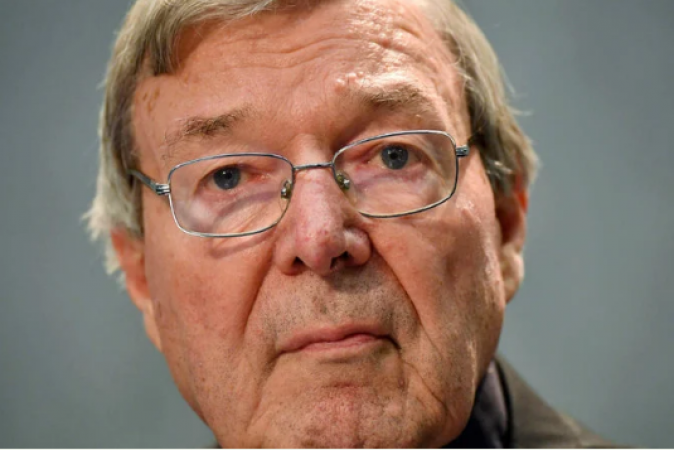
ROME: Australian Cardinal George Pell, a prominent conservative Roman Catholic and former top Vatican official who was cleared of sex abuse allegations in 2020, died on Tuesday at the age of 81, according to his private secretary.
Pell died in Rome on Tuesday night, according to Reuters and Fr. Joseph Hamilton. According to Melbourne Archbishop Peter Comensoli, Pell had hip surgery, and then experienced heart complications.
He posted a statement on Facebook describing Cardinal Pell as "a very important and influential Church leader, both in Australia and internationally, deeply committed to Christian discipleship".
Also Read: Pope Francis argues in favour of keeping Jerusalem's past as it is
Pell's conviction for sexually assaulting two singing boys in the 1990s was overturned by an Australian Court of Appeal ruling in 2020. He was imprisoned for 13 months.
The case of the most senior man accused in the historic sex abuse global scandal that rocked the Roman Catholic Church worldwide has been resolved in a verdict that has allowed Pell, 78, to walk free.
Pell, the former Archbishop of Melbourne and Sydney, served as the Vatican's economy minister from 2014 until he took a leave of absence in 2017 to return to Australia to face the allegations.
Since his acquittal in 2020, he had been living in Rome and had several meetings with Pope Francis. Pell often attended the pontiff's masses, and after his return, Francis publicly praised him.
Pell was a divisive figure in the Australian Catholic hierarchy two decades prior to the sex abuse allegations; He was respected by conservative Catholics, but despised by liberals for his staunch opposition to same-sex marriage, abortion, and female ordination.
A number of historical sex offense allegations against Pell, stemming from alleged incidents in the 1970s at a pool in his hometown of Ballarat and in the 1990s at Melbourne's St Patrick's Cathedral, led to his commitment for trial in May 2018. so-called swimmers. The special evidence was dismissed as a result of the judge rejecting it.
Pell, who had been sent to Rome to look after the Vatican's finances, returned and denied the allegations. He did not testify during two trials, the first of which resulted in a hung jury.
Also Read: Iran will'severely punish' hijab violators
He was found guilty on all five counts for assaulting two teenage choir members in a church while Archbishop of Melbourne.
Pell received a six-year prison sentence, making him the highest-ranking Catholic official to serve time in prison for child sex abuse. His conviction was overturned by seven judges of the High Court of Australia, as they all agreed that it had not been proved beyond a reasonable doubt. He lost his first appeal and went to jail for 404 days.
I don't want to reveal how hard it was, but it was bad and didn't feel like a vacation. But there were many dark moments," Pell recalled of his time in prison in an interview with Reuters in 2020, after his return to Rome.
According to witness Jay, the former choirboy who accused Pell, it can be challenging to prove beyond a reasonable doubt that child sex abuse offenses occurred. Before Pell was charged, other former members of the choir passed away.
One of Australia's most controversial cases, the high-profile one saw some media outlets defy a court order by omitting coverage of the trial.
Pell, an academic and athletic prodigy who was the son of an Anglican gold miner and a devout Irish Catholic mother, grew up in a religious family. When he was 18 he was given a professional Australian Rules football contract and played in the club's reserves, but later decided to enter seminary.
Later, he completed a doctoral program in Church History at Oxford, after which he was ordained as a parish priest in Ballarat.
A large and commanding figure at 6.3 feet (1.9 m) tall, Pell first rose to prominence as Archbishop of Melbourne in the mid-1990s and then in 2001 as Archbishop of Sydney.
The 1990s saw growing criticism of the church for protecting priests and other church staff from violating people's sexual integrity and failing to assist their victims.
Pell was proud to have established one of the world's first programs to provide compensation to victims of child sexual abuse in Melbourne. However, opponents later testified to a government commission of inquiry that the scheme was designed to prevent victims from filing lawsuits.
A five-year inquiry into child sexual abuse in the Catholic Church and other institutions was launched in 2013 by an inquiry known as the Royal Commission.
It was discovered that because of their cultures of secrecy and denial, the church and other institutions had repeatedly failed to keep kids safe.
Additionally, it was discovered that Pell knew at least two priests were abusing children sexually in the 1970s and 1980s but did nothing to have them fired.
Also Read: 12 Arab nations' cultural heritage is on display at the Cairo Bayt Al-Arab fair
The commission added that Pell ought to have inquired as to why Gerard Ridsdale, a priest later found guilty of more than 130 counts of child sex abuse, was frequently transferred between parishes in the 1970s and 1980s.
Prior to Ridsdale's conviction in 1993, Pell claimed to the commission that he was not aware of the offences. He remarked, "It's a sad story, and I wasn't really interested in it."